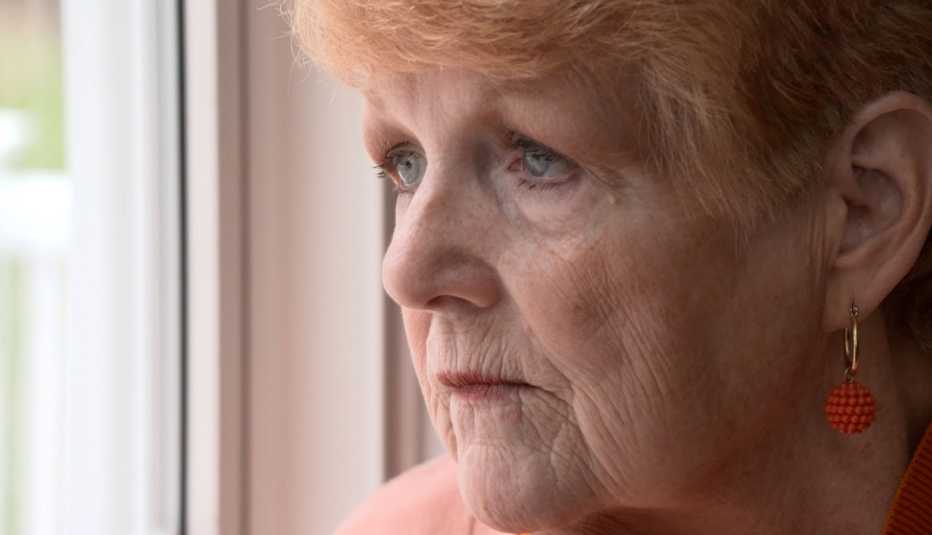AARP Hearing Center
Scammers steal billions of dollars from consumers every year. The impact can be financially and emotionally devastating for victims, especially older ones, and their families.
Magnifying their devastation is something that victims of other crimes don’t typically experience: shame. We blame when we ask how they got "duped," or how much money they "gave" the scammer. Even victims ― when they aren't too ashamed to discuss their experience ― blame themselves when describing the crime.
Nobody is immune to fraud, which is growing more pervasive and sophisticated. Fraud victims deserve the dignity and sympathy we grant people who experience other kinds of crimes.


Fraud Survivor Advocates for Change
Kate Kleinert, who experienced an online romance scam, describes the financial and emotional devastation of this crime. Despite initially feeling embarrassed by her experience, she says attitudes about people who are targeted by scams need to change. She is now a victims’ advocate, bravely sharing her story and helping to fight fraud.
Watch her story here
Let’s direct the blame where it belongs: on the criminal.
The AARP Fraud Watch Network is spearheading a nationwide campaign to change the victim-blaming narrative. We are engaging a wide range of audiences to help them understand that language matters and to ask for their help in their own communications.
Changing how we talk about fraud can help change the way we think about it. The effects could be profound: Victims would be more willing to report these crimes, and the criminal justice system and policymakers would be motivated to fight harder to meaningfully combat fraud. Billions of dollars would stay in our economy, and victims could get justice.
Send us an email if you’d like to talk about how, together, we can change the face of fraud.
Let's Talk About How We Talk About Fraud
In this TedX Talk, Kathy Stokes, director of fraud prevention at AARP Fraud Watch Network, challenges the way victims of fraud are contextualized and often blamed for falling prey to sophisticated crime networks. Stokes shares stories and offers ways we can reframe the shame that often accompanies becoming a victim to fraud and how we can all be more aware and supportive. View the full video here and see a preview below.
Changing the Narrative
AARP Report: Blame and Shame in the Context of Financial Fraud
A Movement to Change Our Societal Response to a Rampant and Growing Crime:
The Perfect Scam Podcast
- Words Matter: Blame Fraud on Criminals, Not Victims
This special episode features a roundtable discussion on changing the conversation around victim blaming.




































































More From the Fraud Watch Network
AARP Fraud Watch Network
Learn how to recognize and avoid scams with resources, tools, articles and more
If You Donate to Relief Efforts for Ukrainians, Give Wisely
10 tips to vet charities and avoid scams